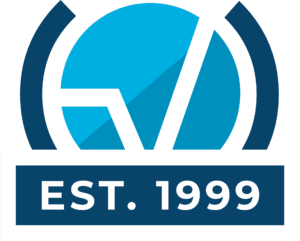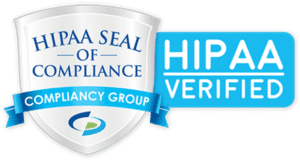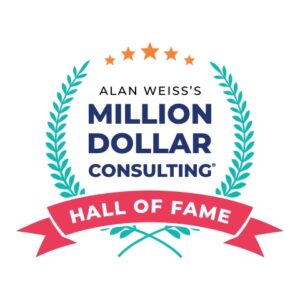Home » Healthcare Supply Chain
Improve the Quality of Patient Care and Outcomes While Reducing Costs
The Healthcare Supply Chain is Foundational to the Financial and Operational Success of a Hospital.
It is a Complex Worldwide Network Which Includes Manufacturers, Wholesalers, Distributors, and Healthcare Service Providers.
Do you understand your supply chain from the inside out? How do you ensure compliance? How often are audits conducted? What is your quality control process? How are you optimizing the inventory on the floors, O.R., and cath lab? How are you managing your service agreements? These are all questions that can determine whether or not you have a resilient supply chain that can effectively turn a profit.
Healthcare providers often struggle to ask themselves these essential questions. Unfortunately, when you don’t have practical answers for common business questions, it can make the healthcare supply chain more obtuse, lead to overpayments, and cause disruptions concerning the quality of care you provide. For example, due to COVID-19, PPE (personal protective equipment) and medical supplies like ventilators faced increased demand, putting financial strain on decision-makers, CEOs, and other healthcare executives. As a result, U.S. equipment shortages severely impacted patient care. In addition, some supply chain management shortages caused by COVID-19 made real-time inventory management processes inefficient and opened brands up to stiffer competition.
Addressing cardinal health system concerns isn’t always easy, even if you have years of experience. However, suppose you want to enable health system resilience, mitigate disruptions, and keep stakeholders happy. In that case, it’s essential that your healthcare organization can review its existing supply chain and make critical adjustments as needed.
For clinicians and healthcare industry supply chain leaders, the right time to rethink healthcare supply chain management is now. Healthcare supply chain management is often essential if you’re looking to improve operational efficiency, health system agility, or cost savings visibility. These improvements can help you establish and maintain a competitive advantage and even redistribute health system capital to product acquisition, improved patient outcomes, and new end-user technology. To learn more about your role in healthcare’s global supply chain, here’s what you need to know.
These Are All Areas That VIE Healthcare Specializes in Through the Following Services:
Physician Preference Items
Nurse Cost Savings
We Look Forward to Having a Discussion With You About How We Can Support Your Organization's Supply Chain Goals.
The VIE Healthcare Advantage -
The Only Comprehensive Cost Savings Solution™
Let's Explore Further How the Supply Chain Works so That You Can Assess Whether Your Organization Is at Risk in This Area.
- What is your approach for strategic sourcing? What response do you get from your suppliers or distributors? Your material manager’s sourcing strategy can significantly impact each person that interacts with your brand and your supply chain.
- How do you work with and gain buy-in from physicians, clinical teams, and senior leadership? Without your administrators and healthcare executives on board, it’s harder to facilitate the use of technology and ensure FDA or other regulatory compliance.
- What is your process to gather and analyze spend data every month? If you don’t regularly review your supply expenses, lead times, and regulatory requirements, it’s harder to track monthly spend data and actionable end-user insights.
- How do you put into place purchasing controls and spend utilization and inventory automation? Many advisory services recommend these digital technologies controls for their network of member firms to ensure more robust inventory management. It’s also a new way for many end-users to interact with financial data and purchasing power. With more users on Internet of Things (IoT) devices, purchasing controls can limit reactive spending, even for critical supplies.
- How do you increase efficiency in your supply chain processes and inventory optimization? Different industries often handle efficiency in different ways. For example, many healthcare organizations depend on new technology and patient care innovations to reduce unnecessary supply spending and encourage more excellent patient outcomes.
- Do you regularly benchmark the performance of your supply chain? Even if you’ve redeveloped your supply chain management strategy over recent years, it’s essential to benchmark performance continuously. Much like jobseekers vet a combination of employer bids when reviewing job ads, healthcare systems need to check various data points to benchmark organizational performance against industry competitors.
- What insights do you subscribe to achieve beyond industry norms for your pricing of physician preference items and purchased services? Beyond this, how do you work to improve customer service and patient safety? Your supply chain strategy is more closely tied to your customer satisfaction and financial performance than you know. With compelling insights and management consultant assistance, it’s easier for you to gain end-to-end visibility into your processes and product standards. You can use these insights to improve end-user engagements, improve point of care strategies, reduce supply chain costs, and help facilitate a greater sense of business continuity.
There Are Four Key Areas of Analysis for You to Consider:
1. Understand Your Costs.
How well do you understand your pricing and how it compares to other hospitals? To your actual reimbursement? If there is a significant difference in pricing, are there valid explanations for the differences? This might sound like a lot of logistics, but it's critical that you can leverage this information as it's often the first step toward top supply chain sustainability. Not only should you understand costs (e.g., how COVID-19 patients drove ventilator sales), you should also be able to benchmark your performance so you can spot where your healthcare organization excels on a daily basis and where you can make improvements.
2. Gain Access to Best Practices.
How often are you benchmarking within your supply chain processes and products and services that you purchase? Do you have metrics in place to track your progress toward improvement goals? With effective supply chain management consulting best practices, you can maintain expense relevance, more capably follow performance, and even test how different supply chain management strategies enable you to query inventory levels, procure materials, and encourage a more significant ROI.
3. Conduct Supply Chain Readiness Audits (SCRAs).
How frequently are you performing these assessments? Are they enough to help you perform root cause analysis, or will unplanned events still negatively impact your organization's finances or operations? Healthcare systems can reshape business strategy based on real-time data from these audits with a bit of supply chain expertise. For example, hospital systems that regularly leverage SCRAs are more likely to get their brands to the right place and grow their bottom line.
4. Standardize Supplies and Services.
What is your process for standardizing supplies and services? How do you analyze your spending for standardization opportunities? Do you have a process in place to have clinical standardization discussions?
Develop consistent, data-driven, and collaborative decisions to optimize the hospital supply chain. No matter the types of products you purchase, your specific workflows, or your labor costs, you can use this data to focus on job sustainability. When you can create a sustainable supply chain, it's easier to allocate your fiscal resources to strategic plan opportunities throughout your healthcare system. You're also better prepared to address variability within your financial performance and spot ways to realize lower costs. If you standardize the supplies and services for your healthcare system, it's easier to maintain supply chain function, meet regulatory agency prerequisites, and apply cost reductions throughout your business.
From PPE manufacturers to insurance companies and pharmaceuticals brands, healthcare organizations need to utilize effective supply methodologies. Whether it's to rethink a specific product, achieve system-wide cost savings, or develop more vital point of care techniques, it's always beneficial to revisit your healthcare supply chain to spot areas of opportunity. To learn more about supply chain management consulting, contact VIE Healthcare Consulting today.
Three Ways to Work with VIE Healthcare
- Benchmark a vendor contract – either an existing contract or a new agreement.
- We can support your team with their cost savings initiatives to add resources and expertise. We set a bold cost savings goal and work together to achieve it.
- VIE can perform a cost savings opportunity assessment. We dig deep into all of your spend and uncover unique areas of cost savings.



